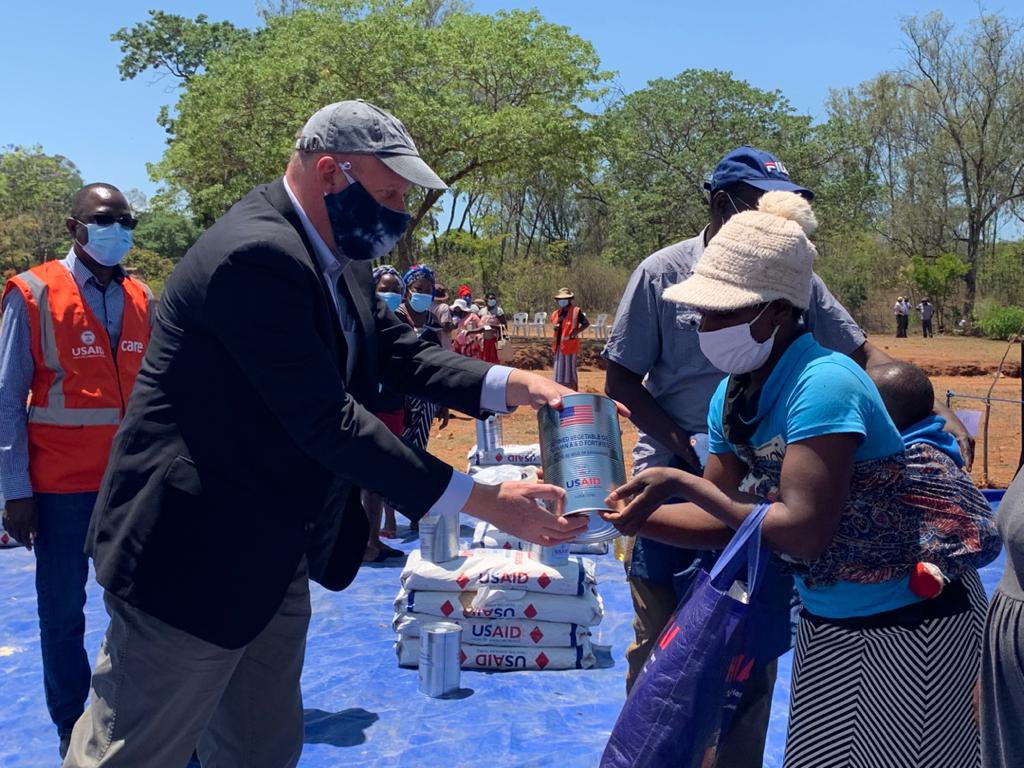|
Getting your Trinity Audio player ready…
|
By Wallace Mawire
CARE International has launched its partnership with the Food, Agriculture, and Natural Resources Analysis Network (FANRPAN), in collaboration with its Zimbabwe Country Node Hosting Institution, the Agriculture Research Council (ARC), to implement activities under the Takunda program.
Takunda seeks to promote sustainable, equitable, and resilient food, nutrition, and income security for the extremely poor, chronically vulnerable, and those at risk of malnutrition.
The USAID-funded Takunda is a five-year Resilience Food Security Activity programme that is being implemented by CARE International along with partners namely Bulawayo Projects Centre, Environment Africa, FHI360, International Crops Research Institute for the Semi-Arid Tropics (ICRISAT), International Youth Foundation (IYF), and Nutrition Action Zimbabwe(NAZ).
According to Care International, climate change is wrecking agricultural production in Africa and most parts of the world.
Production worth more than $45 billion is at risk, and subsistence is threatened due to crop failures and losses driven by rising temperatures, increasingly erratic rainfall, frequent weather extremes, and pest outbreaks.
Reports by the Intergovernmental Panel on Climate Change (IPCC) and the scientific community point to the globally disastrous yet worsening outcomes of this change such as food scarcity, natural disasters, death, conflicts, and stagnating economic growth.
Amid this global crisis, the adaptation capacities of farmers and agricultural enterprises remain weak, underlying the necessity of governments in Africa to collaborate and strategize a course of local climate action.
Care International at the launch on Wednesday 15 February 2023 said that the programme implementation is in two provinces namely Masvingo in Chivi and Zaka districts and Manicaland in Mutare and Buhera districts.
Delivering her opening remarks, the Chairperson of ARC, Dr. Unesu H. Ushewokunze-Obatolu, emphasized the importance of partnerships aimed at delivering positive change, especially programmes that complemented existing government programmes.
She said, “I am excited to see the government being represented at very senior levels. This shows that the issues that the Takunda programme is dealing with, are important to our policymakers.”
Mr. Patrick Sikana, Country Director at CARE International, added, “The conversations we are having are anchored on redefining how we as partners, meaningfully engage women, not just as producers of value but as equal sharers of value. It is also about how we, Development Partners and the Government of Zimbabwe, use the finite resources we have for greater impact.”
During his presentation to Government officials, partners, and members of the humanitarian sector, Walter Mwasaa, the Programme Director for Takunda at CARE, said, “Takunda is a multisectoral programme that needs the support of the Government of Zimbabwe, at all levels.”
He also said that they are keen on support from the Ministry of Lands, Agriculture, Fisheries, Water, and Rural Development, the Ministry of Women Affairs, Community, Small and Medium Enterprises Development and the Ministry of Primary and Secondary Education to facilitate the scale-up of good practices that surface during implementation.
The programme builds on the resilience of low-income people who may be chronically affected by climatic and economic shocks by working to achieve sustainable and equitable income from agriculture production, improve off- and non-farm livelihoods and create more opportunities for income-generating activities.
In a speech delivered on his behalf, the Permanent Secretary in the Ministry of Lands, Agriculture, Fisheries, Water, and Rural Development, Dr. John Basera, expressed his approval of the Takunda programme, saying, “I am therefore delighted and expectant of the benefits to accrue from the partnership with the USAID-funded Takunda programme as we jointly seek to improve the lives of people. I am hopeful that the programme will generate useful models that we can extend to other parts of the country with similar challenges”.
In a speech read on behalf of Moses Mhike, Permanent Secretary in the Ministry of Women Affairs, Community, Small and Medium Enterprises Development, said “Let us take this opportunity as partners in gender programming to strengthen our workmanship and the way we conduct business, knowing that we can do more as a team. Let’s exchange knowledge, ideas and tools on how best we can improve our work to attain gender equality and women’s economic empowerment.”
Mr. Ahmadou N’Diade, Deputy Office Director, representing USAID through the Humanitarian Assistance and Resilience (HAR) Zimbabwe, said, “USAID highly values the collaboration with the government of Zimbabwe, CARE International, and all Takunda’s stakeholders. We would like to assure you of our commitment and support so that this project lives to its potential and that it reaches the development objectives it has set out to achieve.”
